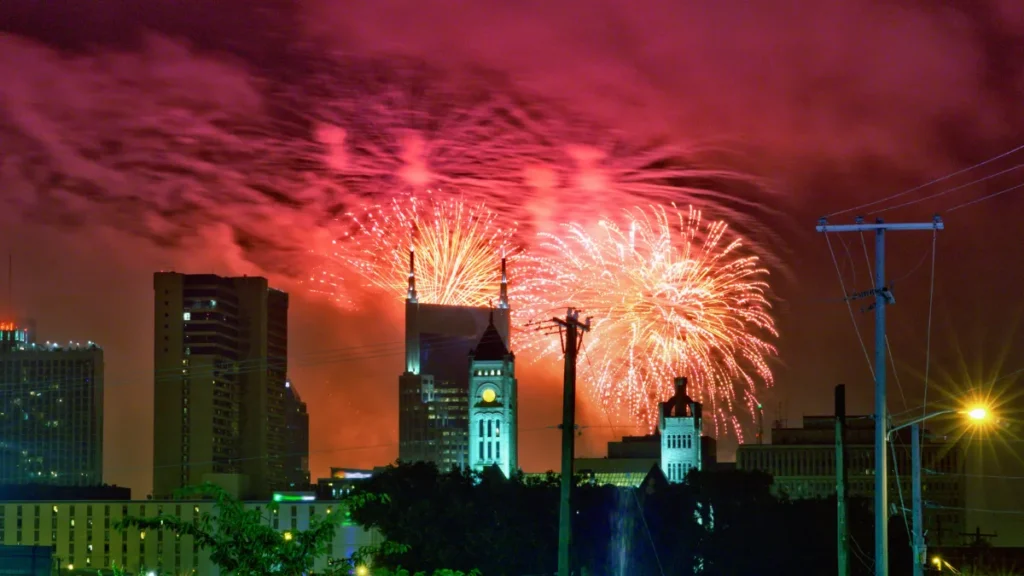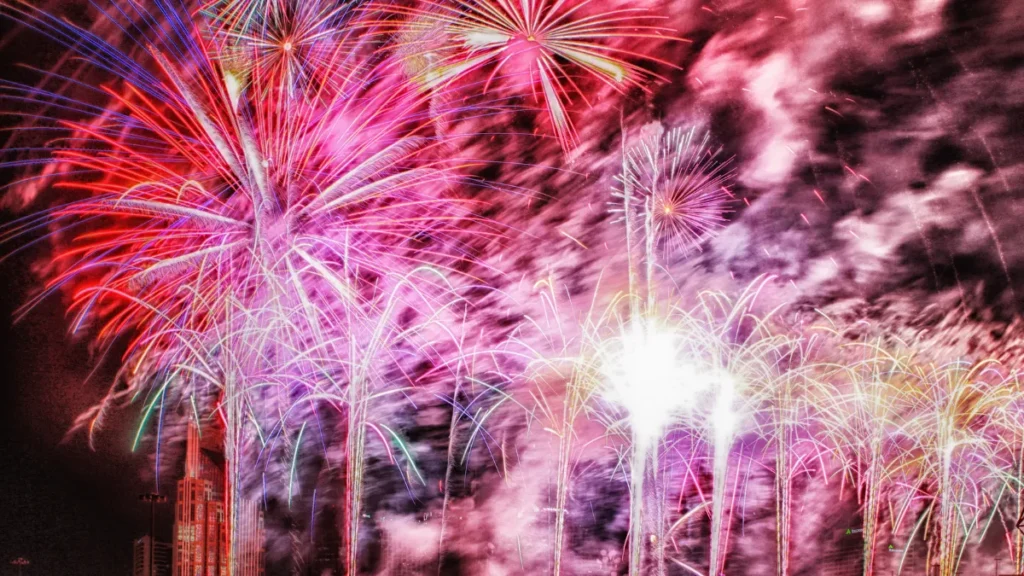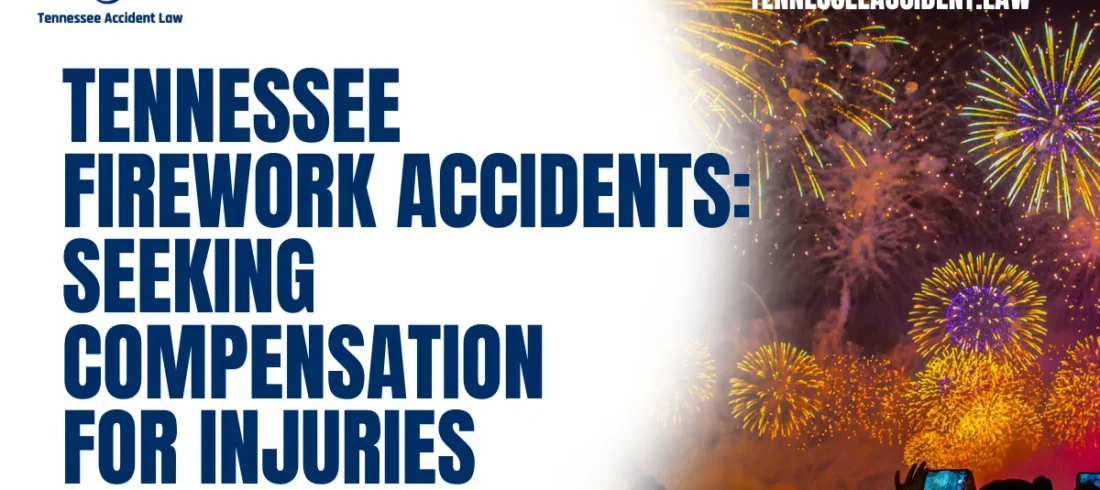Tennessee Firework Laws: Comprehensive Guide for Residents and Visitors
Understanding Tennessee firework laws is crucial for ensuring safety and compliance during celebrations. At Tennessee Accident Law, we are dedicated to educating individuals about legal obligations to prevent accidents and injuries caused by fireworks. This guide will walk you through the details of Tennessee’s firework regulations, from purchasing restrictions to usage guidelines, and provide insights on what to do if a firework-related injury occurs.

Overview of Tennessee Firework Laws
Tennessee permits the sale and use of consumer fireworks, but there are specific regulations to ensure public safety. Both state and local governments regulate firework usage, so understanding these laws is essential whether you’re a resident or a visitor.
Legal Definition of Fireworks in Tennessee
Under Tennessee law, fireworks are defined as any device designed to produce a visible or audible effect by combustion, deflagration, or detonation. This includes sparklers, Roman candles, firecrackers, aerial shells, and more.
Who Can Buy Fireworks in Tennessee?
Tennessee law stipulates strict age requirements for purchasing fireworks. According to Tennessee firework laws:
- Age Restrictions: Only individuals aged 16 and older can legally purchase fireworks.
- Valid Identification: Retailers are required to verify the age of buyers by checking a government-issued photo ID.
Firework Sale Regulations
Retailers selling fireworks must comply with Tennessee’s licensing and operational standards to ensure safety:
- Seasonal Sales Periods: Fireworks can only be sold during designated times of the year, including June 20 through July 5 and December 10 through January 2.
- Licensed Sellers: Vendors must obtain a permit from the Tennessee Department of Commerce and Insurance.
- Storage and Display: Fireworks must be stored in compliance with fire safety regulations to prevent accidents.
Failure to comply with these rules can result in penalties, including fines and the revocation of permits.

When and Where Can Fireworks Be Used in Tennessee?
While Tennessee firework laws allow for the use of consumer fireworks, their discharge is subject to specific guidelines:
Permitted Times
- Fireworks may only be discharged during holidays such as the Fourth of July and New Year’s Eve unless otherwise allowed by local ordinances.
Restricted Areas
- Fireworks cannot be used near hospitals, schools, or public parks.
- Most municipalities have additional restrictions, and some cities, like Nashville, prohibit firework usage within city limits.
Noise Ordinances
Many cities enforce noise ordinances that restrict firework usage during late-night hours, even on holidays.
Local Restrictions on Fireworks in Tennessee
While Tennessee firework laws provide a general framework for the sale and use of fireworks, individual cities and counties often impose additional restrictions. These local regulations aim to address specific safety, environmental, or community concerns. Understanding these localized rules is essential for ensuring compliance and avoiding fines or penalties.
Examples of City and County Restrictions
- Nashville (Davidson County):
- The discharge of fireworks is strictly prohibited within Nashville city limits, except for permitted professional displays.
- Selling fireworks without a local permit is also illegal, even if state requirements are met.
- Knoxville (Knox County):
- Fireworks cannot be used or sold within the city limits of Knoxville.
- Knox County allows fireworks in unincorporated areas but imposes restrictions on their use near public spaces, such as schools and parks.
- Chattanooga (Hamilton County):
- The use of fireworks is limited to certain times and dates, typically around major holidays like the Fourth of July and New Year’s Eve.
- Noise ordinances may further restrict firework usage during late-night hours.
Why Local Laws Matter
Local governments enact firework restrictions to address specific needs, such as:
- Fire Risk: Densely populated urban areas or regions with high wildfire risks often have stricter regulations.
- Noise Control: Cities with high population densities may limit fireworks to reduce disturbances to residents.
- Environmental Protection: Areas near protected wildlife habitats or water bodies may prohibit fireworks to prevent pollution or harm to ecosystems.
How to Check Local Regulations
Before purchasing or using fireworks, verify the rules in your area by:
- Visiting your city or county government’s official website.
- Contacting local law enforcement or fire departments for guidance.
- Reviewing local ordinances posted online or in public notices.
Consequences of Non-Compliance
Failing to adhere to local firework restrictions can result in:
- Fines: Penalties may range from $50 to several hundred dollars.
- Confiscation of Fireworks: Authorities may seize fireworks being used or sold illegally.
- Legal Charges: Repeated violations or actions causing property damage or injury can lead to misdemeanor charges.
Safety Guidelines for Firework Usage
Following safety protocols is critical to prevent accidents and injuries. Tennessee Accident Law recommends the following precautions:
- Adult Supervision: Ensure that an adult is present when children are around fireworks.
- Safe Distance: Maintain a safe distance from structures, vehicles, and other people when lighting fireworks.
- Use Outdoors Only: Never discharge fireworks indoors.
- Proper Disposal: Dispose of used fireworks in water to prevent accidental fires.
Firework-Related Injuries and Legal Recourse
Despite adherence to Tennessee firework laws, accidents can still occur. If you or a loved one has been injured due to someone else’s negligence, you may be entitled to compensation. At Tennessee Accident Law, we specialize in personal injury cases, including those involving fireworks.
Common Injuries from Fireworks
- Burns: Caused by mishandling sparklers or aerial fireworks.
- Eye Injuries: Resulting from explosions or debris.
- Hearing Damage: Due to loud blasts from fireworks.
Steps to Take After an Injury
- Seek Medical Attention: Prioritize your health by visiting a medical professional immediately.
- Document the Incident: Take photos, collect witness statements, and preserve evidence.
- Consult an Attorney: Contact a personal injury lawyer to discuss your rights and potential compensation.

Legal Consequences of Violating Tennessee Firework Laws
Violating Tennessee firework laws can result in severe penalties, including:
- Fines: Penalties can range from $50 to $1,000 depending on the severity of the violation.
- Misdemeanor Charges: Reckless use of fireworks leading to property damage or injury may result in criminal charges.
- Civil Liability: Individuals causing injury or damage through improper firework usage can be held financially responsible.
How Tennessee Accident Law Can Help
If you’ve been injured in a firework-related incident, our team at Tennessee Accident Law is here to help. With over 20 years of experience, we are committed to securing justice for our clients. We have successfully represented victims against negligent parties, including individuals, retailers, and manufacturers.
Free Case Evaluation
We offer a free case evaluation to help you understand your legal options. Our experienced attorneys will assess your case and guide you through the legal process.
Stay Informed and Protected
Understanding and following Tennessee firework laws is essential for a safe and enjoyable celebration. Whether you’re purchasing fireworks, setting them off, or recovering from an accident, compliance with these laws can prevent injuries and legal troubles.
For personalized legal assistance or to report a firework-related injury, complete our free case evaluation form today.
Sources:
- Tennessee Department of Commerce and Insurance
- This department oversees the licensing and regulation of fireworks in Tennessee. They provide detailed information on permits, safety standards, and seasonal sale periods.
- Link: Tennessee Department of Commerce and Insurance
- National Fire Protection Association (NFPA)
- The NFPA offers guidelines and safety standards for the handling and use of fireworks, ensuring compliance with national fire safety protocols.
- Link: National Fire Protection Association
- U.S. Consumer Product Safety Commission (CPSC)
- The CPSC monitors consumer fireworks safety and provides data on injuries, recalls, and recommendations for safe use.
- Link: U.S. Consumer Product Safety Commission

